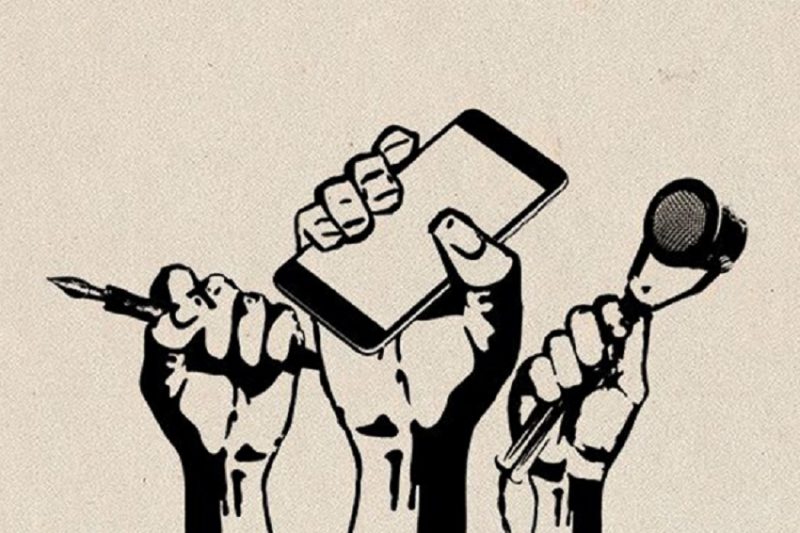

Freedom of expression, enshrined in Article 10 of the European Convention on Human Rights (hereinafter the ECHR), is one of the basic foundations of a democratic society and one of the basic conditions for the progress and development of every human being. States must not only refrain from interfering with this right but must also take measures to protect it effectively. Restrictions on the freedom of expression, provided for in paragraph 2 of Article 10 of the ECHR, must be strictly interpreted, and the need for any restrictions must be convincingly demonstrated. In particular, the intervention of any public authority in the right to expression must be provided for by law, be necessary for a democratic society and must take place only in the pursuit of one of the purposes mentioned in paragraph 2. If any of the above does not apply, then it is considered that there has been a violation of Article 10 (see more in this guide to Article 10 of the Convention).
In 2018, the ECtHR issued two decisions finding that Greece violated Article 10 of the ECHR:
– In February 2018, a decision was issued in the case of Alpha Doryforiki Tileorasi Anonymi Etairia v. Greece (see the press release here.)
The applicant (owner of the television station ALPHA) alleged that the sanctions imposed on it by the National Radio and Television Council for showing three secretly filmed video-recordings violated its right to freedom of expression and in particular the right to information.
In 2002, three videos that were filmed with a hidden camera were broadcast on the channel. The National Radio and Television Council in May 2002 found that the use of the cameras had not been in accordance with the law and fined the company 100,000 euros for each of the programmes. In 2003 the applicant lodged an application for annulment with the Council of State, which was rejected by that court in 2010.
The ECtHR, considering that the imposition of sanctions constitutes an interference with the applicant’s right to freedom of expression, examined whether this intervention is in accordance with the provisions of paragraph 2 of Article 10 of the ECHR. Distinguishing between the 1st video on the one hand and the 2nd and 3rd on the other, they found that the national authorities did not take into account in their assessment of the 1st video the conditions under which it was taken (that is, that it was recorded in public). For this reason, the ECtHR ruled that in relation to the 1st video there was a violation of Article 10 of the ECHR (see paragraph 75 et seq. And especially paragraphs 78-80).
The ECtHR also ruled that there was a violation of Article 6 of the ECHR (right to a fair trial), due to the fact that the duration of the proceedings (over 7 years) was excessive.
– In June 2018, the ECtHR issued a decision in the case of Paraskevopoulos v. Greece (appeal no. 64184/11), recognizing that Greece had violated Article 10 of the ECHR in this case (press release available here).
In this case the applicant alleged that his criminal conviction for an article he had published in a local newspaper had violated his right to freedom of expression. In December 2007 the applicant had written a newspaper article accusing people who had become involved in politics of abusing their position. Following this, the head of the local council took him to court for defamation.
In July 2010 the Court of Appeal ultimately found that it was clear that he had been speaking of the head of the local council, found him guilty of insult via the press and sentenced him to a two-month suspended prison sentence. The courts rejected his argument that he had raised a legitimate issue of public interest which was also true. In particular, the appeal court found that even though the facts reported in the article were accurate, the way he had expressed himself had been insulting. The head of the council also sued him for damages and in July 2014 she was awarded 2,500 euros.
The ECtHR held that the applicant’s conviction by the national criminal courts constituted an interference with his right to freedom of expression, which, disproportionate to the aim pursued, was not necessary in a democratic society and therefore found that in this case the Article 10 of the ECHR had been violated.
The fundamental rights that every citizen should enjoy are enshrined, inter alia, in the European Convention on Human Rights. Respect for these fundamental rights is one of the key components of a state governed by the rule of law.
However, in 2018, the European Court of Human Rights issued the above two judgments in which it ruled that the applicants’ right to freedom of expression had been violated by the national authorities.
Bank Account number: 1100 0232 0016 560
IBAN: GR56 0140 1100 1100 0232 0016 560
BIC: CRBAGRAA
![]()
In a time where the very foundations of democracy are gradually being eroded by the rise of extreme nationalism, alt-right movements, the spread of disinformation and corporate capture, the efforts of organisations such as Vouliwatch are more relevant than ever.
We rely on the generosity of each and every one of you to continue with our efforts for more transparency and accounta
By financially supporting Vouliwatch you support our litigation strategy, our campaigns for transparency and accountability in the political system, the development of new civic tech tools, our research projects and last but not least our impartial and accurate